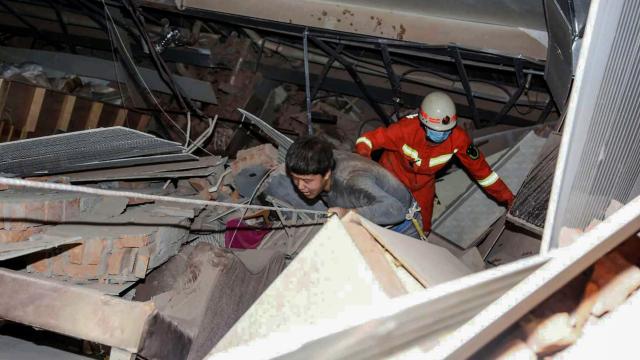A hotel in southeastern China collapsed Saturday, trapping about 70 people among the wreckage, Reuters reported. According to local media outlets, the building had recently become a quarantine centre due to the novel coronavirus outbreak.
The bizarre incident occurred in Quanzhou, China at around 6:30 a.m. ET, and ongoing search and rescue efforts recovered 43 people from the rubble as of Saturday evening, according to China’s Ministry of Emergency Management per CNN. No fatalities have been reported at this time. Footage of the scene shared by the Xinhua News Agency shows orange-clad emergency workers combing through towering piles of what used to be the Xinjia Hotel.
Exactly why the five-story structure collapsed remains unclear. Officials were using the facility to quarantine people who either tested positive for COVID-19, the disease caused by the novel coronavirus behind this ongoing global outbreak, or had previously come into contact with someone infected, according to the People’s Daily, China.
After news of the incident went viral on Weibo, a popular microblogging platform in China akin to Twitter, it prompted significant public outcry for a thorough investigation into how the building collapsed.
More than 100,000 cases of the novel coronavirus have been confirmed worldwide, according to the World Health Organisation’s latest situation report. In China, the outbreak has infected more than 80,000 people and is responsible for 3,000 deaths.
